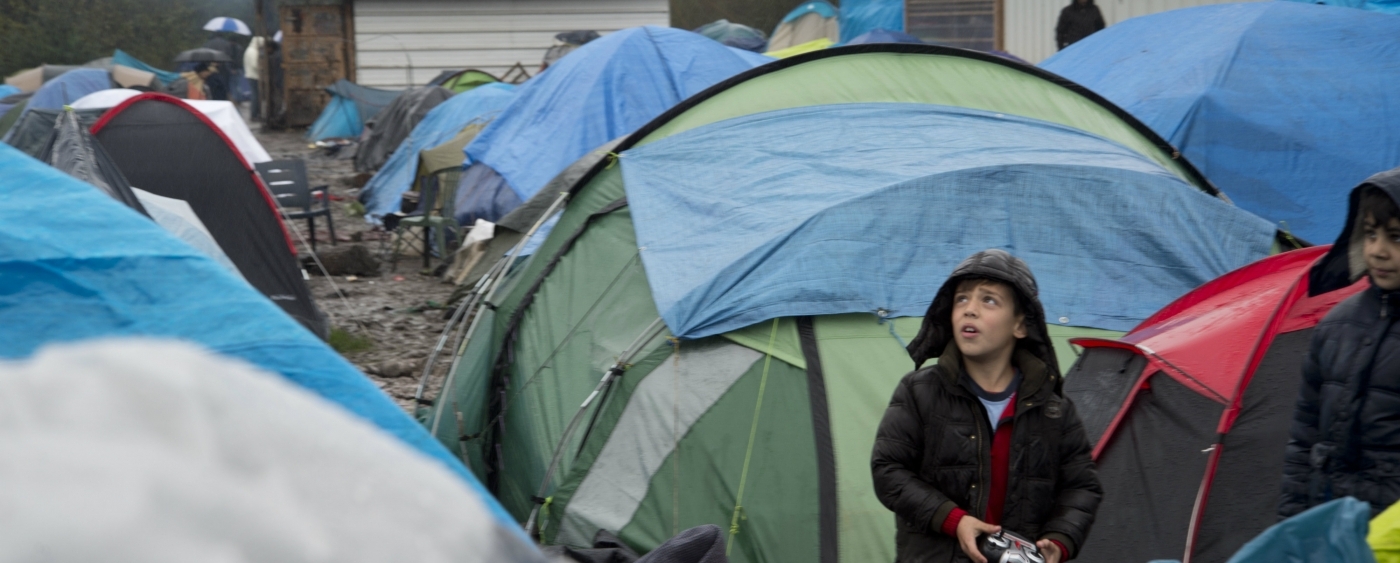The stick, do you remember that? On Calais, Dunkirk, and the Channel
Published 3rd September 2019
“If we allow our humanity to be undermined by allowing people to drown at sea on our coasts, or by allowing lifesaving healthcare to be withheld, we risk turning our backs on the most vulnerable as well as the principles by which we provide healthcare”.
Lucy Jones, Director of Programmes
Today, around 600 people live in informal camps in Calais, and around 800 in Dunkirk. On a daily basis, they are evicted from these makeshift settlements, the police take their tents and sometimes even remove personal objects such as food, medication, and phones.
People are exhausted, stressed, angry, and because of the constant evictions feel like they have no personal space in which to retreat, rest and be at peace. Many suffer from Post Traumatic Stress Disorder (PTSD) because of their journey or their life back home. They are forced to live life in limbo, with little support and in very difficult circumstances.
We conducted a survey in Dunkirk in March 2019, and we found that:
- Nearly 60% of responders say they don’t have sufficient access to drinking water. 80% don’t have access to a shower and 87% don’t have access to toilets
- More than 50% report that they haven’t received medical care when they experienced a health issue
- Around 52% said they don’t have enough to eat
- Almost 69% say they don’t know the emergency number to request accommodation
Refugees in Calais and Dunkirk are stuck, surrounded by uncertainty, without support. Hospitals are often very far from the settlements and they are very hard to reach for the refugees. There is no psychological support for them in Calais, and a state psychologist is available in Dunkirk for just one afternoon a week. In the last few months, there have been cases of self-harm and suicide attempts.
The terrible living conditions in Calais and Dunkirk have a negative impact not only on the mental and physical health of refugees now, but will have an impact on their future as well. In the UK, we met two unaccompanied children who had recently arrived from Calais. Over dinner, they joked between themselves about lorry drivers in France, and how they remembered the angry ones more than anything.
“Yes, the ones that come out with those long sticks – like this big! Do you remember that? Do you want to go back to Calais?”, they jokingly asked each other.
In these days of political debates and alarmist headlines, we need to remember who the refugees in Calais and Dunkirk are. They are people, they are sons and daughters, fathers and mothers, students and engineers, political activists and artists. They are people with a past and a future who want to be reunited with their families and communities, to live in a country where they can speak the language and work, where they can be safe.
In Calais and Dunkirk, we run a mobile clinic providing medical care in the camps, psychosocial support activities, we provide information on their right to healthcare and liaise between them and the hospitals. In our UK clinic, we help them register with a doctor and access care.
Britain has a proud history of providing safety to those in need. Now, we need not to turn our backs now to those who need us the most.
